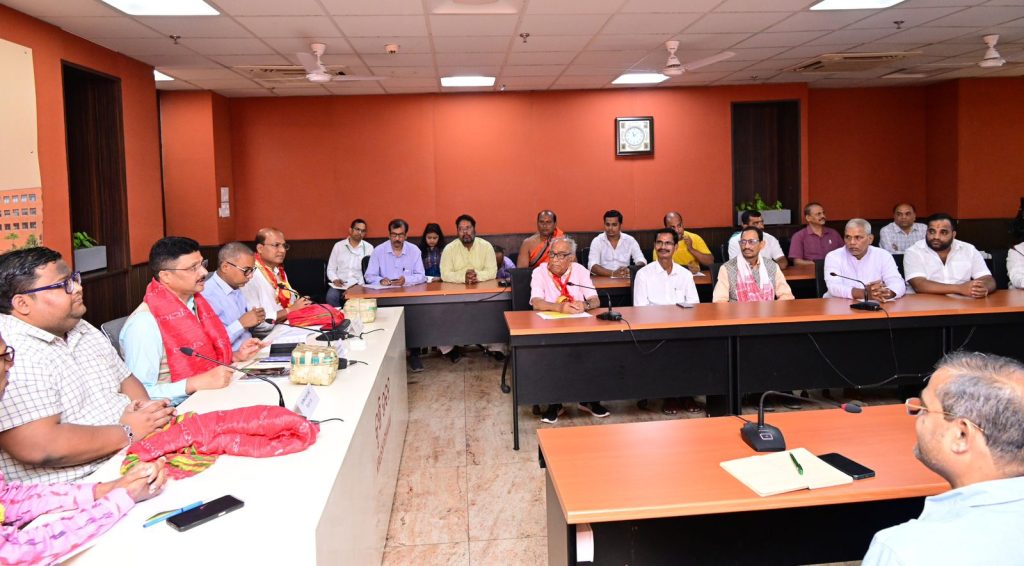Bhubaneswar: An ardent devotee of Lord Jagannatha, Dr.Arabinda Kumar Padhee has initiated an innovative program use of organic rice in the preparation of Shree Mandira Mahaprasad.
Dr.Padhee, Chief Administrator Shree Jagannath Temple Administration and Principal Secretary Agriculture and Farmer’s Empowerment chaired a Brain Storming Meeting on the use of organic rice in the preparation of Shree Mandira Mahaprasad here on 12 February.
Detailed discussion on the use of organic rice in the preparation of Mahaprasad in Shree Mandira was held, where Director Agriculture and Food Production, Prem Chandra Chaudhary presented details.
Officials say that efforts have been started by the State Government to make the Mahaprasad chemical-free. The decision to use organic rice and vegetables in the Mahaprasad of Shree Mandira has been welcomed by the Suar-Mahasuar and the Shrimandir Administration.

In the initial phase, this organic rice will be used in the Kotha Bhoga of ShreeMandira. Along with this, there is a proposal to use organic rice and vegetables in the Bhoga that is being held during Shree Gundicha Rathayatra. A special project called ‘Amruta Anna’ will be implemented and Mahaprasad prepared from organic Anna will be available for devotees at Anand Bazaar. For this, there is a proposal to open a special counter at Anand Bazaar.
Initially, organic rice varieties like Kalajeera, Pimpudibasa, Jubaraja etc. produced in the state will be used in this ‘Amruta Anna’ Mahaprasad.
Out of these, Kalajeera rice has already been achieved the GI tag (Geographical Index). Currently, Odisha is ahead of the national average in rice productivity.
This year, Kalajeera rice has been cultivated in 1365 acres of land in Koraput and for the first time, a Kalajeera rice mandi has been opened in Kotpad. Organic certification, subsidies etc. are proposed to promote organic farming.
Along with this, Farmer Producer Organizations (FPOs) will be encouraged to produce organic rice through cluster approach and a steering committee will be formed to implement the entire process smoothly. The committee will have representatives from the Shree Mandira Administration, Suara- Mahasuara, other producer groups, NGOs and departmental officers as members.
In the initial phase, the target is to produce organic rice on 100 to 200 acres of land. Seed will be saved. Later more organic paddy production will be encouraged. The organic grains will be used in the ‘Amruta Anna’ Mahaprasad. While producing organically, the use of cow urine, cow dung, seed amrut and other organic fertilizers can also help in the protection and increase of the cow’s population in the state.
Among others Dean of OUAT Professor Prasannajit Mishra, Puri District Collector Shri Siddhartha Shankar Swain, Administrator NITI, SJTA Jitendra Kumar Sahu, Administrator Development, SJTA Debabrata Sahu, Commander SJTA Sudhakar Patnayak, Suar, MahaSuar President Padmanabh Mahasuar and Secretary Narayan Mahasuar, Senior Sebayata Baidyanath Mahasuar, representatives of various organic producer groups, self-help groups, Natabara Sarangi from Rajendra Indigenous Rice Research Institute, Officer of Koraput Pragati Institute Prabhakar were prominently present and participated in the discussion by presenting their views.


